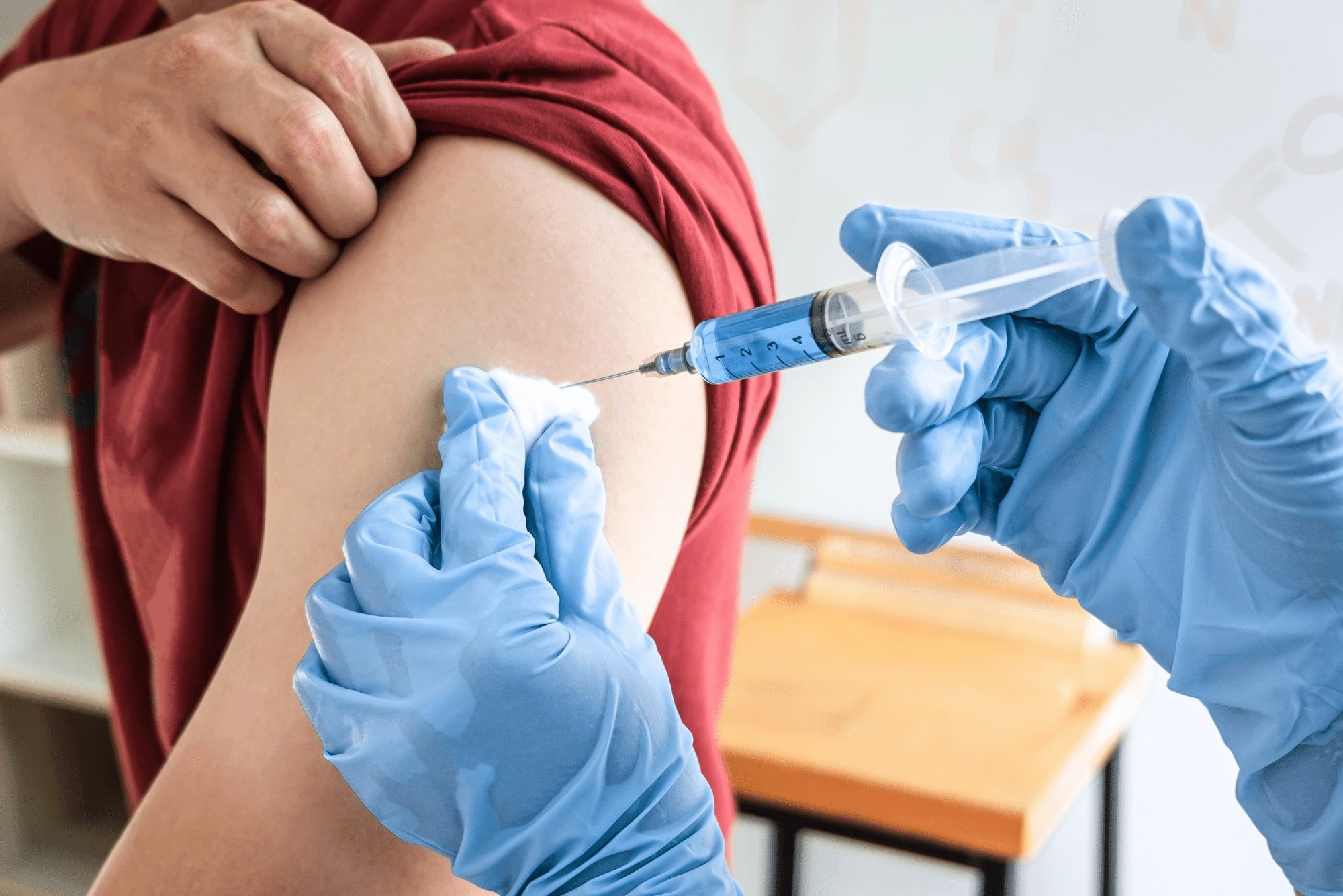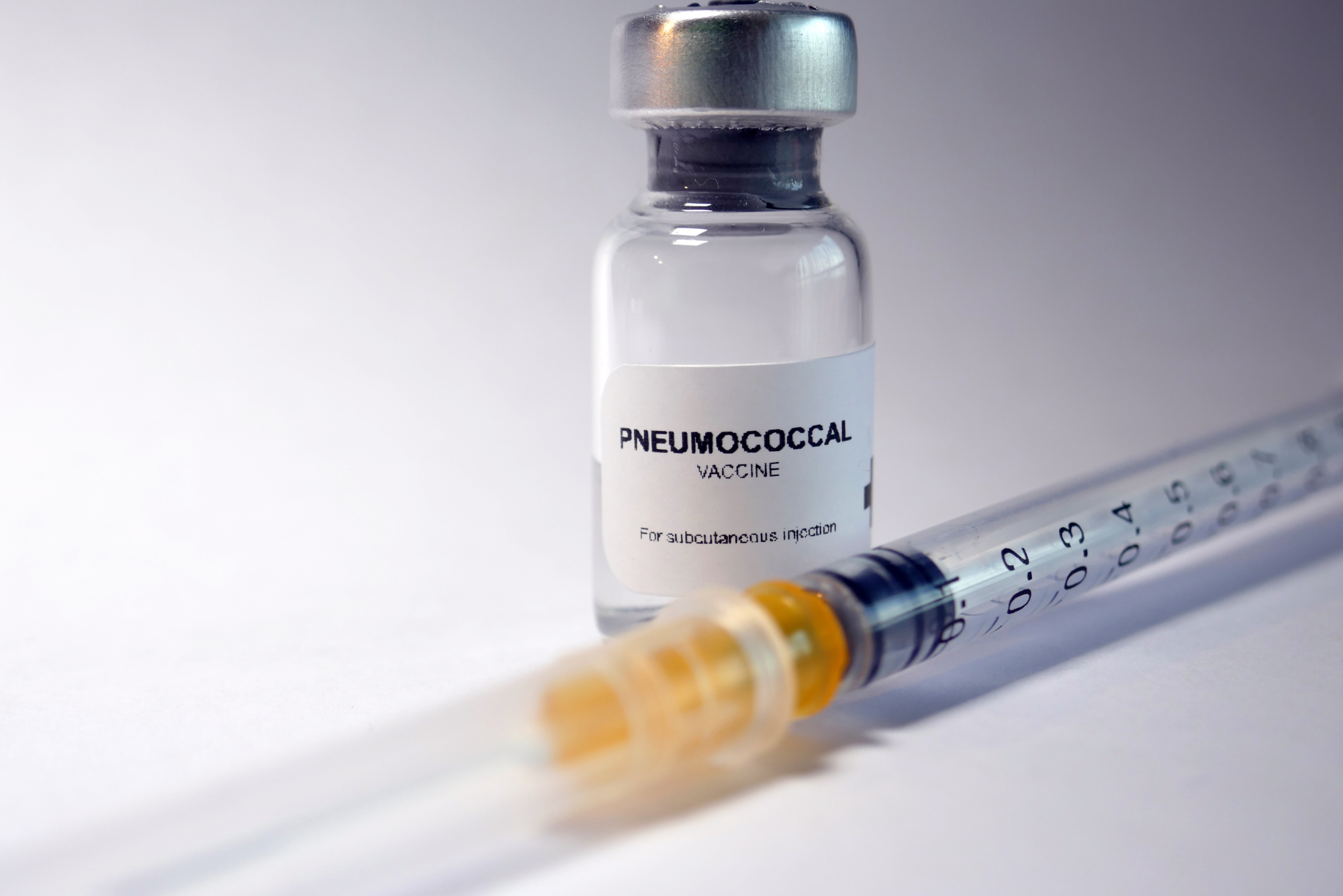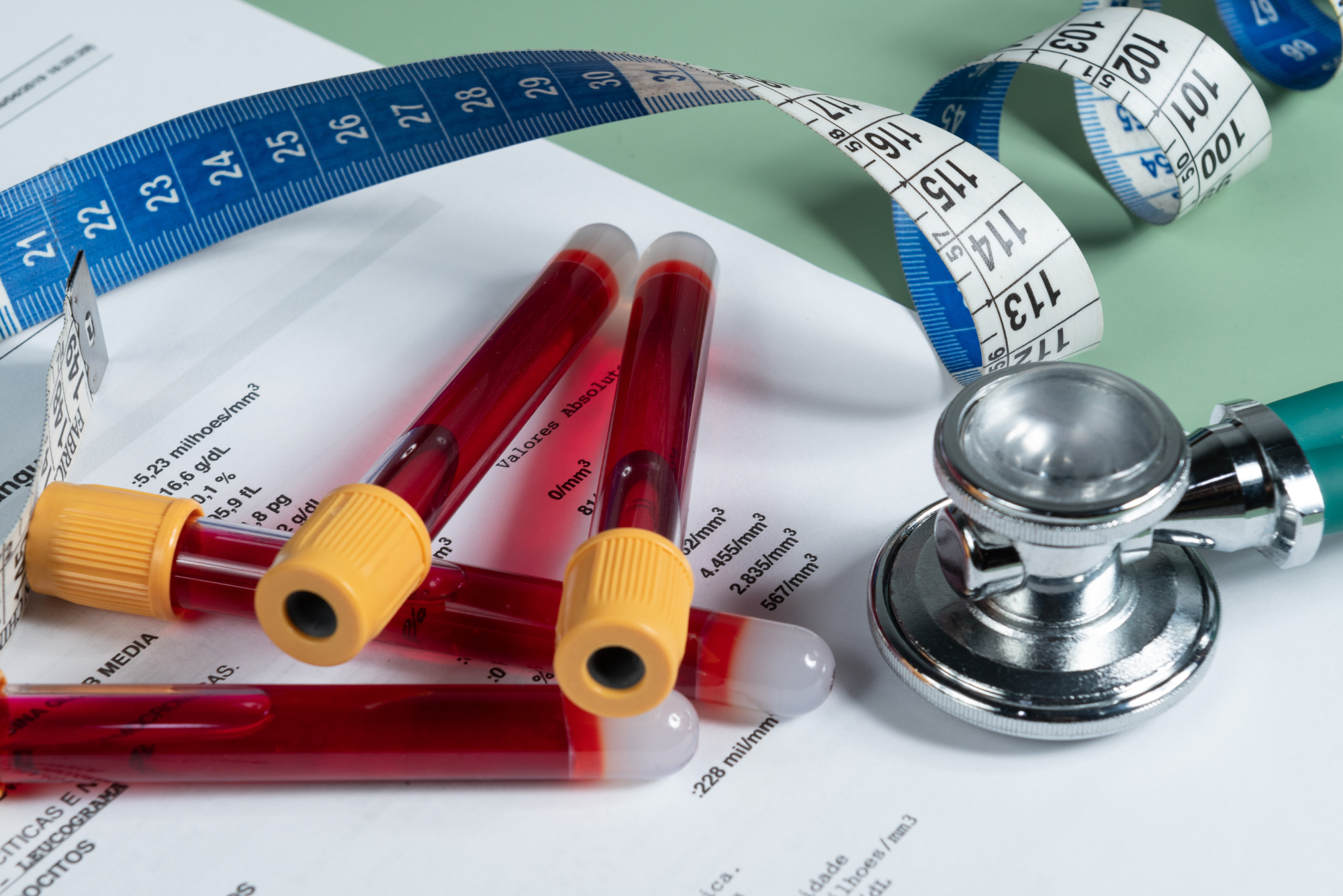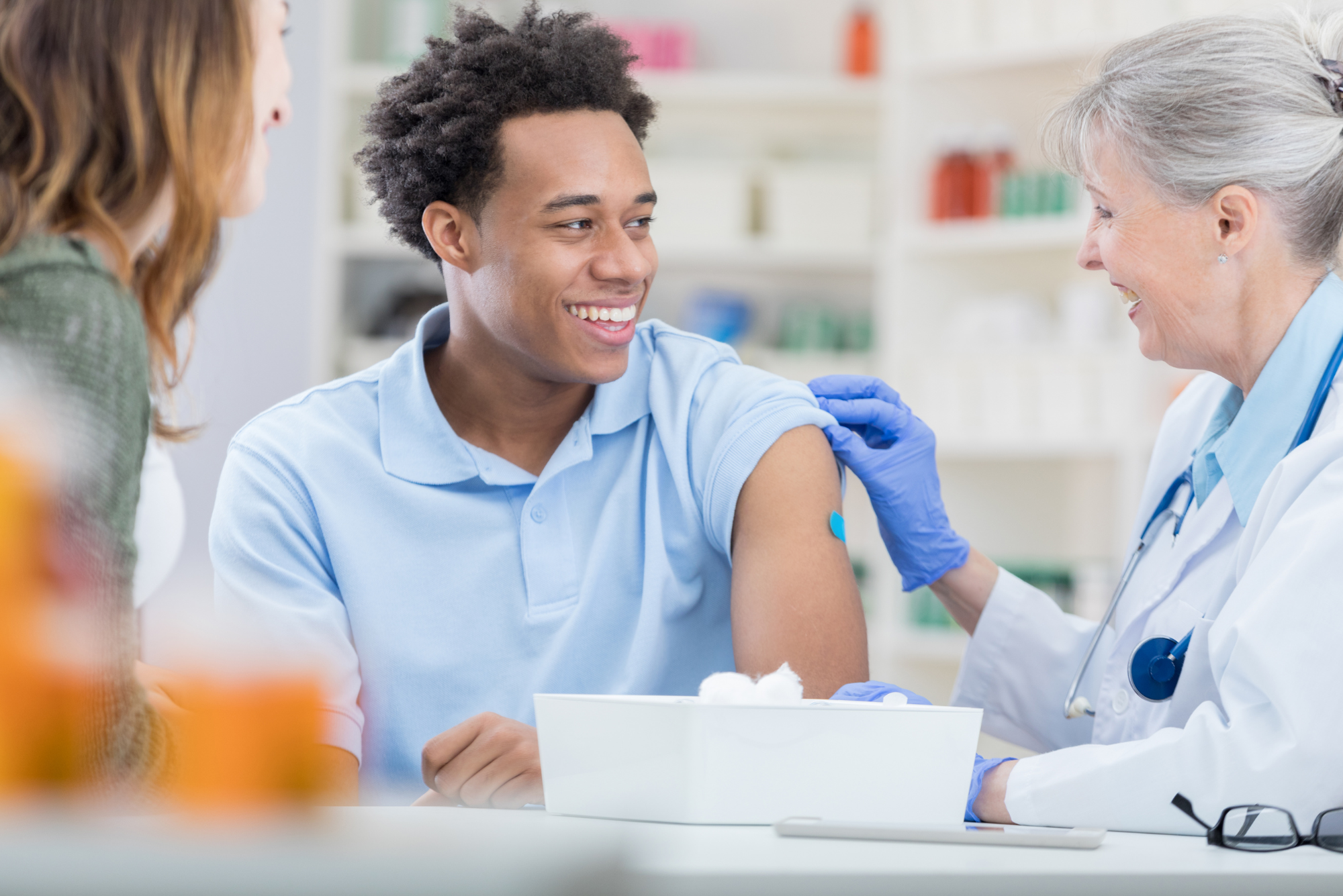Autumn, a time for changing seasons, beginning school, and thinking about vaccinations. This year there are three vaccines to discuss: influenza – the perennial classic, COVID – becoming a new tradition and Respiratory Syncytial Virus (RSV) – the new kid on the block.
RSV can cause mild cold symptoms such as coughing, fever, congestion, and sneezing. Symptoms can last for a week or two. Unfortunately, two groups of people are at risk for more serious outcomes. Children under five are more susceptible to bad outcomes with 60,000-80,000 hospitalizations and 100-300 deaths per year. Also, for those over 65 there are 60,000 – 150,000 hospitalizations and 6,000-10,000 deaths per year.
The Fall and Winter of 2022-2023 was one of the worst RSV seasons in recent memory due to many people coming out of COVID isolation and gathering with each other in larger numbers spreading the illness through society. The rate of hospitalizations for those over 65 shot up two-fold. Because there is no specific treatment for RSV in adults, other than supportive care, there is a great need for preventative treatment such as a vaccine.
In the Summer of 2023, CDC’s Advisory Committee on Immunization Practices (ACIP) met to evaluate two new RSV vaccine options: Abrysvo by Pfizer and Arexvy by GSK. Both have been approved for use in those over 60 years old and are currently available. Both pharmaceutical companies are in the midst of marketing campaigns for the vaccines. You may have, or will soon, see their advertisements.
For better or worse, practicing medicine during the COVID pandemic has led to diminished trust in our federal health agencies, creating healthy skepticism and a desire to more critically examine their decisions. At Banner Peak Health, we have reviewed some of the data submitted to the CDC for the two RSV vaccines and have come to our own conclusions.
Both vaccines underwent randomized controlled trials. Ideally, we would have wanted to see evidence of a reduction in hospitalizations and deaths due to RSV. Unfortunately, the two studies didn’t have enough participants to be able to document these critical outcomes. The studies only demonstrated a reduction in illness and symptoms not severe enough to lead to hospitalizations. Furthermore, several hundred people would need to receive the vaccine for every one episode of this level of illness avoided.
Most concerning for these vaccine side effects was their rate of two potentially fatal autoimmune central nervous system diseases, Guillain Barre Syndrome and Acute Disseminated Encephalomyelitis. These were very rare complications occurring in 1 out of 7,500 to 15,000 study participants. However, this rate is much higher than normal in the population and much higher than the rate observed in other vaccines such as influenza and Shingrix (shingles).
How to interpret this data?
These vaccines may be powerful tools for reducing hospitalizations and deaths from RSV, and their rate of dangerous autoimmune complications may have been overstated in these trials to due the randomness associated with the trials. Only a handful of cases occurred. However, the data submitted to the CDC does not support the pharmaceutical companies’ recommendation that everyone over the age of 60 receive the vaccine. The risk/benefit ratio based on the existing data is not strong enough. Basically, more studies and time for follow-up are needed to better understand the strengths and weaknesses of these vaccines.
Nonetheless, RSV is still a potentially lethal disease for those with high-risk health conditions. For these individuals, the protection from the vaccine outweighs the very small risk of a side effect.
In the meantime, our policy at Banner Peak Health:
- If you or a family member are at high-risk for a bad outcome from RSV, please get the vaccine. It is now available at local pharmacies. We define high risk as having a compromised immune system due to illness or medication, current cancer treatment, as well as a severe illness affecting your kidneys, heart, or lungs. If you are uncertain as to your status, please contact us to discuss the issue.
- Everyone else should wait. Hopefully, by next year, we will have more complete information to assess whether to use the vaccines.
Brief COVID Update:
The worst of the pandemic may be over, but COVID is still with us. We are in yet another surge, driven by the emergence of a new variant dubbed Eris- EG.5 (XBB1.9) which currently makes up around 15% of reported cases. Eris can be thought of as the grandchild of Omicron; it’s still highly contagious, but not causing as severe a disease as some of the original variants which have vanished from the human population. So far, Eris symptoms are like previous Omicron variants, possibly with less loss of taste and smell than its grandfather Omicron.
A new vaccine targeting a more recent variant, Omicron XBB.1.1.5, should be available in late September or early October. Raising the question, get the existing bivalent COVID booster now or wait and get the newer version?
We recommend waiting for the newer vaccine which more closely targets the current variant and should be available in a few months. However, if you are planning on traveling or have a high-risk gathering planned, you will need protection sooner and would benefit from getting the current vaccine as soon as possible.
Influenza:
The theme of appropriate timing applies to influenza vaccination as well. We will have our influenza vaccines in early September. The high dose Fluzone vaccine is recommended for everyone over 65, and Flublok is for those under 65 or anyone with an egg allergy. We prefer Flublok over other quadrivalent vaccines because it is less allergenic (not grown in eggs) and more potent since it contains a higher amount of hemagglutinins than the standard quadrivalent flu vaccines offered in the pharmacy.
We recommend that you wait until October to receive your influenza vaccination. A slight delay ensures that the 3-4 months of peak protection will cover a bit later into the flu season which often peaks a bit later here in California. However, if you plan to travel in October, receiving the vaccine in September is okay to ensure adequate time to respond to the vaccine before traveling.
What about receiving more than one vaccine at a time? Not a good idea. Simultaneous vaccinations increase the side effect burden and can create uncertainty as to which vaccine you had a reaction to.
In Summary:
For RSV, unless you or a family member are high risk, please wait to receive the vaccine this season. We define high-risk as having a compromised immune system due to illness or medication, current cancer treatment, as well as a severe illness affecting your kidneys, heart, or lungs. If you are uncertain as to your status, please contact us to discuss the issue.
For COVID, please wait for the release of the new COVID vaccine due in late September or early October.
If you are planning to travel or have high-risk gatherings planned, and it’s been more than four months since your last booster or infection, please get a booster now.
For influenza, please wait until October to ensure that your maximum antibody levels will remain effective throughout the flu season. You can be vaccinated at a pharmacy, or we will have a series of flu vaccine clinics later in the Fall. It is okay to receive the flu vaccine in September if you plan to travel in October.
Please contact us with any questions.

Barry Rotman, MD
For over 30 years in medicine, Dr. Rotman has dedicated himself to excellence. With patients’ health as his top priority, he opened his own concierge medical practice in 2007 to practice medicine in a way that lets him truly serve their best interests.



